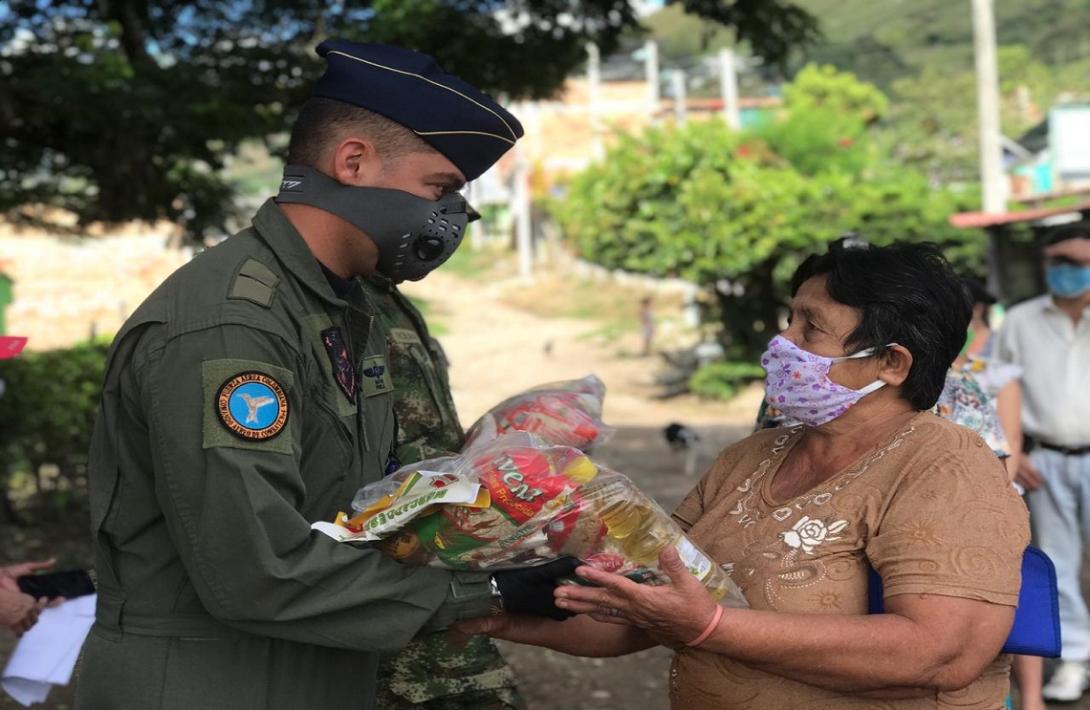The year 2020 was an atypical year that changed the lives of thousands of people, a year in which no one expected the unforeseen arrival of a virus called COVID-19, a pandemic that transcended borders, that did not distinguish social status or religions, that has left more than 70 million people infected and more than 1.6 million dead worldwide.
As a result of the spread of the virus, more than half of the world's inhabitants have been kept under some type of confinement and social distancing has been imposed, in combination with the isolation of older adults, closing of schools and cancellation of any event for prevent crowds.
In this context, a large number of countries have decided to close schools and universities and move to virtual education. In the same way, telecommuting has increased and the mobility of the inhabitants has been reduced, implementing mandatory quarantines, which means that people must be inside their home for periods of two or more weeks, causing a serious economic recession throughout the planet.
Although these strategies have been effective in reducing the contagion rate, they have had important social and economic consequences, especially in places where the socioeconomic conditions of the citizens are one of the main barriers to acquiring goods and services of the inhabitants.
To face this situation, the Colombian Air Force, through Air Combat Command No. 4, deployed all its operational resources to combat this virus, which has taken the lives of thousands of people, having its aircraft and personnel available to reach the most remote places.
While the streets were being desolate by the confinements, the military went out to visit municipalities, villages and vulnerable neighborhoods of the department to reach the most vulnerable families with aid.
Along this long road and without resting a single day, help was sought from large companies in the region who, without profit motives, actively engaged with food baskets, hygiene items and biosecurity kits to benefit low-income residents who were undoubtedly going through many needs.
The Air Command loaded its aircraft with more than 7,000 food baskets with basic products of the family basket, distributed in municipalities such as Melgar, Girardot, Flandes, Chaparral, Planadas, Icononzo and Neiva, which benefited around 36,000 people with unsatisfied basic needs, including children, mothers who are heads of households and the elderly.
More than 700 flight hours were necessary in the 339 missions carried out by Ranger helicopters Bell 212, Huey II and Bell 206 of the Colombian Air Force in the departments of Tolima, Huila and part of Cundinamarca. They included air and ground loudspeakers and the launch of brochures with messages that sought to raise awareness among the inhabitants about the importance of staying at home and adopting the measures given by the government to prevent the spread of the virus in the regions.
Seeing children looking through their windows, unable to go out to enjoy the game or fun characteristic of childhood is sad and heartbreaking, as well as seeing elderly people left alone in a world and a society that forgets them, but being able to help and serve those who need it most is comforting and even better wearing a uniform full of glory and triumphs.
Our soldiers have fought in times of war, they have come out victorious and triumphant, now they are fighting an invisible enemy as lethal as the same weapons that have taken their companions and family members, but with courage and security in their operations they have continued reaching who need it most.
Source: press - Colombian Air Force





